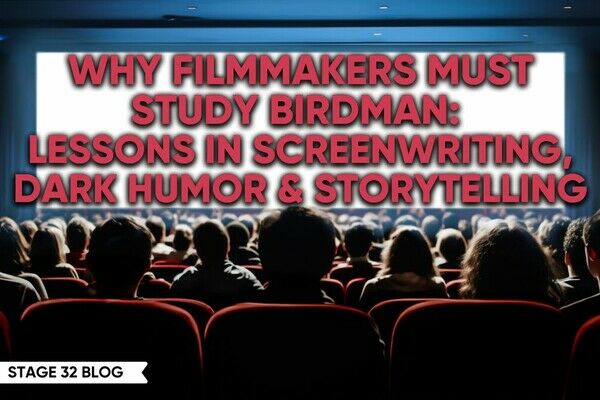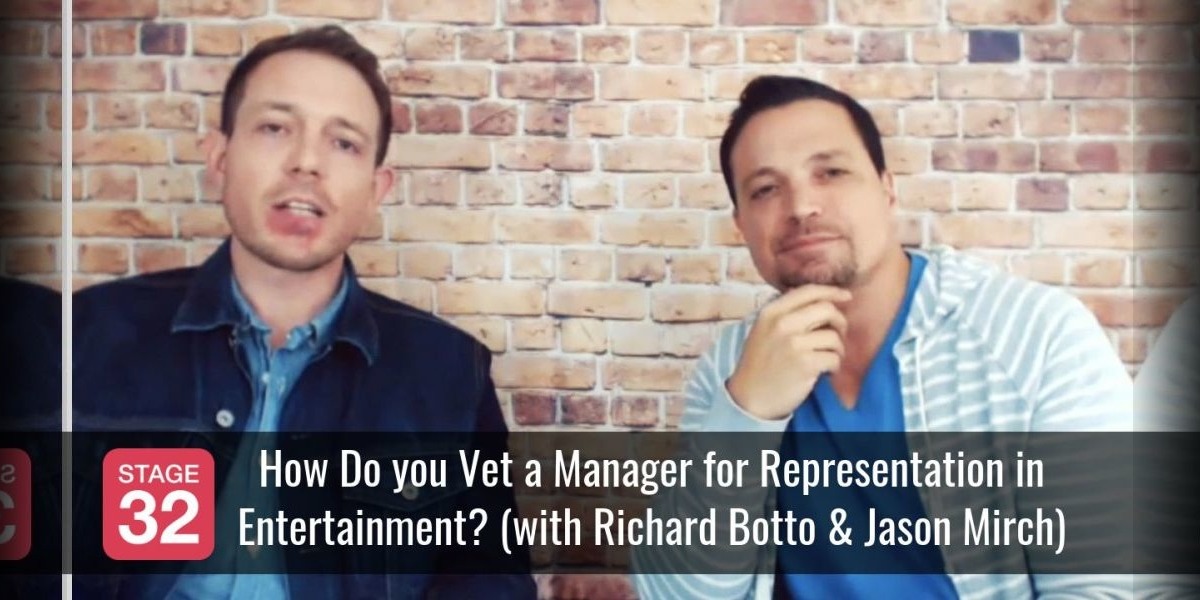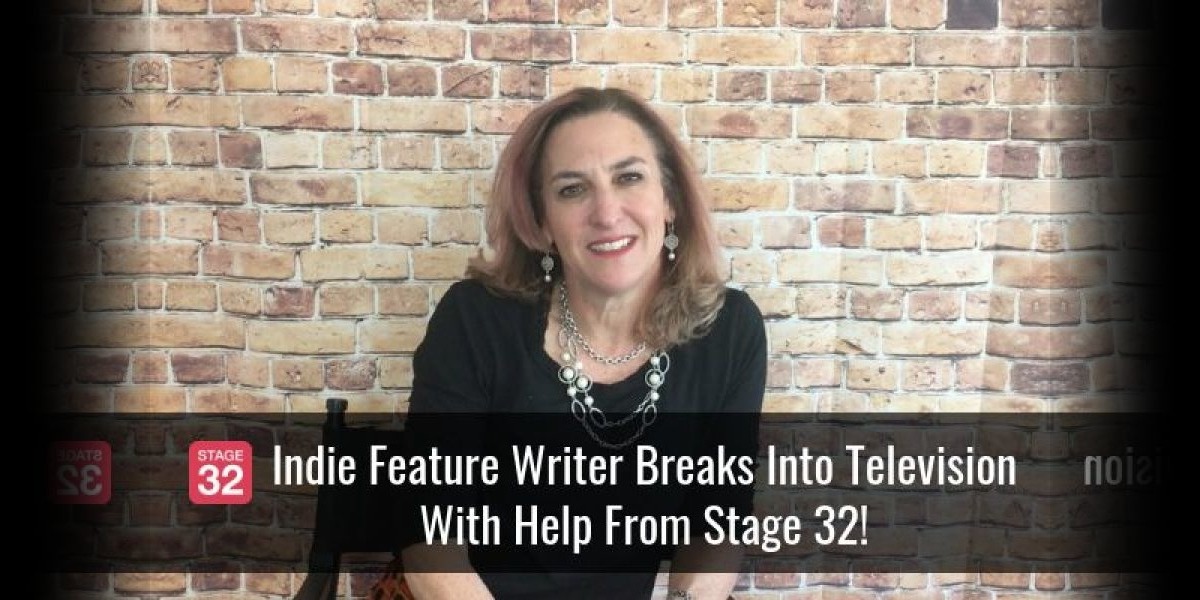How an Amateur Screenwriter Can Improve With These Simple Tips
When Hollywood first started making movies, everyone worked for the studios. Eventually, independent producers started making their own movies and it seems everyone with a typewriter started writing screenplays. Hollywood had to build a wall to keep all those people out they didn’t think belonged, which was just about everyone. That's when literary agents appeared on the scene. Hollywood would rely on agents to filter through all those screenplays to find one they could use.
Things haven’t changed all that much.

There are probably around 150,000 unsold screenplays floating around Hollywood on any given day. I know that sounds bad,. but out of those 150,000 eightly percent were probably written by new screenwriters that didn’t even take the time to learn how to write a screenplay and have almost no chance at all. So, if you take the time to learn how to write a screenplay properly you would be competing with the 20% (or 30,000 screenplays) that have any chance at all.
If you are new to screenwriting and you aren’t discouraged and still want to give it a try, then you might actually be a screenwriter. Assuming screenwriters usually get better with practice, the more screenplays you write the better your chance. Out of the 150,000 maybe 3% or 4,500 have a realistic chance so Lady Luck will play some role.
Almost all screenplays that get made did so because the screenwriter or their agent knew someone. So instead of just thinking of selling your screenplay, use it to make connections in the business that can help you launch your career. That is when Lady Luck will no longer play such a big role.
Your Spec Screenplay Is Your Calling Card
When people read your screenplay, you want them to think you know the business and how to write for it. Your screenplay has to be written as well as humanly possible. That means it must be formatted correctly with few grammar and spelling errors. You want your screenplay to glow in the dark among the competition.
Avoid Writing an Amateur Screenplay

The biggest difference between a professional screenplay and an amateur screenplay is how it's written. Unlike other forms of writing, screenplays do have cadence that comes from writing economically. An overwritten screenplay could throw off Hollywood’s theory that one page equals one minute of screen time. Also, and probably more importantly, is a reader at a studio office will probably be your first audience to see it. If your screenplay is overwritten, it will make the reader work harder and that is never a good thing. If they have a stack of screenplays to read and your screenplay is going to make them work too hard, the trash can will look awfully appealing. And why not? An overwritten screenplay is a sign the screenwriter probably doesn’t have much experience, so reading their screenplay would probably be a waste of their time.
Tips for Writing Economically
- After a character appears for the first time, describe them briefly so your reader can put a picture of that character in his or her mind. Only describe what they are wearing if it is vital to the story.
- Keep action lines to three lines or less, four at the max. A shot or sequence should stay within one description. If the action changes all of a sudden, then start a brand-new paragraph.
- Only write what we can see or hear on film. That means you would avoid things like the character’s thoughts. If you need to show what a character is thinking or their emotions, you have to write something the audience can see because the audience will not be sitting in a dark theater reading what you wrote down on paper. So instead of writing, “Carol is sad.” write, “Tears swell in Carol’s eyes.”
- It is not necessary to describe every single detail in your scenes. You should avoid describing a character’s every movement. Just paint your scenes using broad strokes and then let your reader’s imagination fill in the rest.
- Action always happens immediately on film, so avoid words like, "suddenly," "then," "begins to," "starts to," and just make the action happen without any type of temporal qualifiers. For example, instead of saying, "Suddenly, he runs across the street,” just say, "He runs across the street.” Another example would be "She starts to sing." You would just write, “She sings.” Write "Tom crouches behind the chair, dashes for the door” as opposed to “Tom moves over to a chair and crouches behind it. Then he looks left and right. Then he turns to the left and races out the open door.”

- When setting a scene, avoid words like “are,” “and,” “there,” “it is,” “it's," “to go,” “to say,” “is,” “to be” and words that end in “ly” whenever possible. Sometimes you can sneak one in, but words that do end in “ly” are normally auxiliary verbs that aren’t necessary and can be eliminated in screenplays.
- Avoid words that end in “ing” whenever possible because present tense is preferred in screenwriting.
- Usually the word “and” can be replaced by using a comma or starting a new sentence.
- When it comes to dialogue, you can usually eliminate the first few words of the dialogue like, "Well," "No," "Yes," "Of course," "I mean," etc.
- In the real world, people do say things like “hi,” "hello," "goodbye," etc., but you can usually eliminate them in a screenplay.
- In real life when we are polite, we often say things like "please," "thank you," "you're welcome," etc., but unless those words are going to be used for irony or emphasis, you should eliminate them.
- Avoid having a character ask too many questions and getting answers. Question and answer dialogue take twice as much dialogue than a character who just states something. When a character does ask a question, it doesn’t mean someone has to answer their question. That is especially true if the audience would automatically assume what the answer would be.
- Also avoid using “beats”. In order to show a pause in dialogue or action in your screenplay ellipses are preferred… and don’t use more than three dots to show a longer pause.
Apply these tips and you'll move from an amateur screenwriter to a much better one in no time.

Dan Guardino is never short of inspiration with twenty plus screenplays under his belt. Several of Dan's screenplays are in various stages of development for production with well-known directors and producers attached. Together these directors and producers have been involved in the making of over three hundred movie productions. Dan is the Script Consultant for the thriller movie HEART STOPPER. Producers: Americana Films and My Own Worst Enemy Productions. Producer Michael Z. Gordon. Director: Paul Flaherty.
Dan co-wrote the script MY OWN WORST ENEMY with Film Producer Michael Z. Gordon. He also wrote a screenplay on assignment for Carmen Stevens Productions that was optioned by Kensington Publishing/Media L.A, as well as two screenplays on assignment for Producer Michael Z. Gordon of Americana Films & My Own Worst Enemy LLC.
Dan and Judy Norton adapted the novel TAPESTY and THE DEVIL IS IN THE DETAILS. Producers: Judy Norton and Dan Guardino. Judy Norton will star in both films. Judy Norton launched to international fame when she starred for 9 years in the Emmy Award winning series THE WALTONS. Represented by Legacies...A Literary Agency, WGA Signatory Mary Ann Amato.
Like this blog post? Please share it on social media (Facebook, Twitter, LinkedIn, email etc) by using social media buttons at the top of the blog. Or post to your personal blog and anywhere else you feel appropriate. Thank you.
As always, we welcome thoughts and remarks on ANY of the content above in the Comments section below...
| How Do you Vet a Manager for Representation in Entertainment? (with Richard Botto & Jason Mirch) |
| Indie Feature Writer Breaks Into Television With Help From Stage 32! |
Search Stage 32 Blog
There are now 3681 blog posts for you to enjoy. Search them all by tags below.
Acting, Advice, Cinematography, Coffee & Content, Composing, Contests, Distribution, Featured, Filmmaking, Financing, Inspirational, Networking, Producing, Screenwriting, Success Stories, Tips, Trending,Relevant Tags
Recommended Articles

St. Pete-Clearwater Film Commission Partners with Stage 32!

Coffee & Content: How Do You Overcome Negativity?

Stage 32 Certification at Focus London 2024!

Say, “Thank you”: Why Gratitude is Your Superpower

Why Filmmakers Must Study Birdman: Lessons in Screenwriting, Dark Humor, and Storytelling

November Write Club Week #4: Congratulations, You Got Through the Door! How Are You Keeping it Open?

New Feature: Stage 32 Writers Are Now Spotlighted With Unique Badges!

Why Write About Your Experiences Through Fantastical Lenses?

Announcing the 2nd Annual Period Piece Screenwriting Contest






